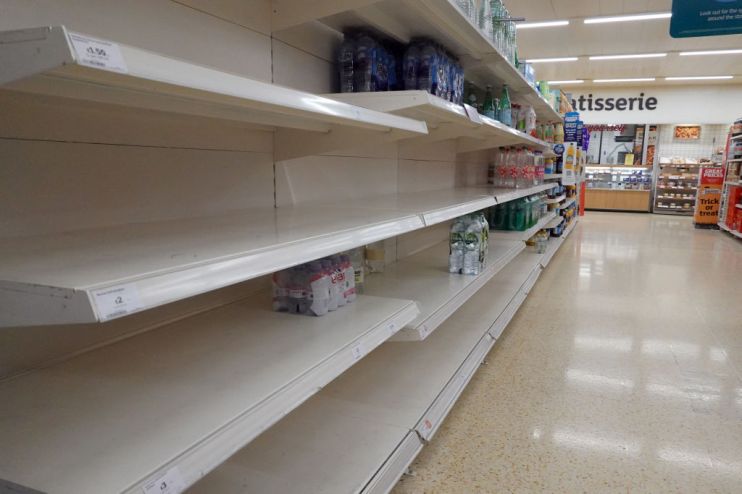Talent war and transport costs hit shop prices

A toxic combination of rising transport costs, severe worker shortages and soaring commodity prices is fuelling food price inflation.
Food prices rose for the first time on an annual basis in six months in September, up 0.1 per cent, according to research from the British Retail Consortium (BRC).
Supermarkets have been raising pay for HGV drivers in a bid to attract workers, which is squeezing margins and prompting food retailers to raise prices to protect their bottom line.
Meanwhile, a shortage of CO2 triggered by gas suppliers turning off production due to soaring wholesale energy costs making it financially unviable to supply the resource has hampered food production. CO2 is used to stun animals before slaughter and package food.
A paucity of lorry drivers has led to lengthy delays in deliveries of food to supermarkets. Oil prices have also risen above $80 a barrel for the first time in three years.
Helen Dickinson OBE, chief executive of the BRC, said: “There are now clear signs the months-long cost pressures from rising transport costs, labour shortages, Brexit red-tape, and commodity costs are starting to filter through to consumer prices.”
Overall shop prices dipped 0.5 per cent over the last year, a slower rate of decline compared to the 12 month and six month average of 1.4 per cent and 0.8 per cent respectively.
A lack of HGV drivers is stopping fuel from being transported across the UK, which has prompted petrol station operators to close forecourts. Internal government figures show fuel levels have been running at 20 per cent over the last two days compared to a normal level of 43 per cent, The Times reported yesterday.
Reports of fuel scarcity have prompted Brits to rush to petrol stations to fill up their vehicles.
“It is inevitable that prices will continue to rise, but Government intervention would minimise the impact on consumers,” Dickinson added.
The government has announced 5,000 temporary visas for HGV drivers in an effort to tackle the shortage. There are also 5,500 temporary visas available for poultry workers.